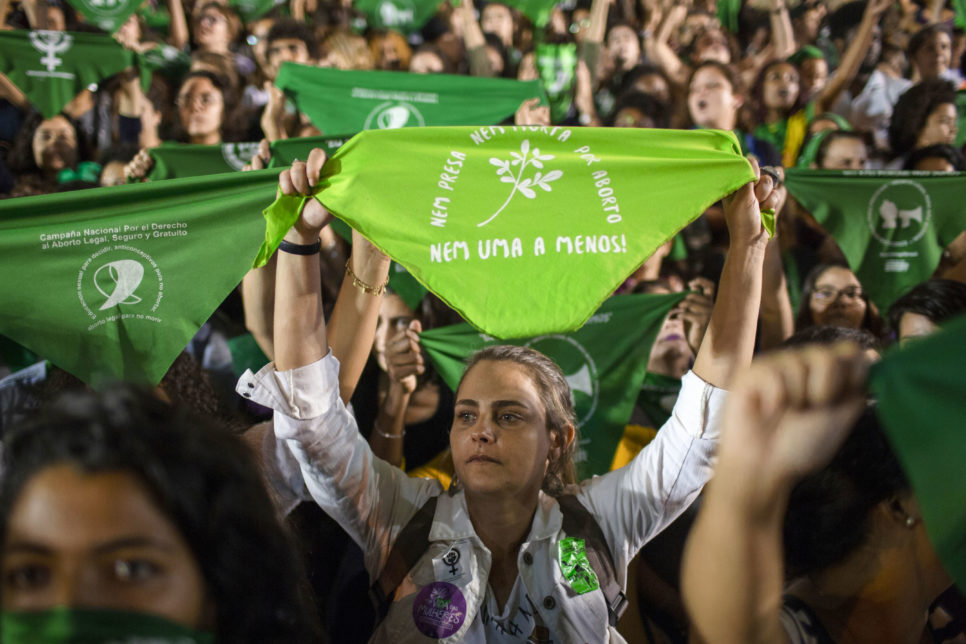The news made all the headlines: a ten-year-old girl who was raped by her uncle gets pregnant in the state of Espírito Santo. Brazilian law clearly permits the termination of pregnancy in these cases, but this did not stop a wave of violence and intimidation against the girl and the health professionals involved in the procedure.
The federal government, through the Ministry of Health, took advantage of the upheaval to publish a ministerial order making it mandatory for doctors to notify the police in cases when there is evidence or confirmation of rape. In practice, people seeking an abortion now have to present evidence of the crime and the name of the perpetrator, making it even more difficult to obtain an abortion in cases permitted by law.
The measure was widely condemned by Brazilian civil society and nearly 350 organizations signed a joint statement against the Ministry of Health’s order. In September, five opposition parties filed ADPF Case (Allegation of Violation of a Fundamental Precept) No. 737 in the Supreme Court.
Read more
Together with the organizations Geledés and Themis, Conectas was admitted as an amicus curiae in the case and their contribution to the judgment was fully formulated and signed by black women – the group most affected by policies to curtail reproductive rights.
The organizations argued that the procedure for performing legal abortions was sufficiently detailed and that there was no need to require healthcare professionals to notify the police of the possible occurrence of rape, nor to collect and preserve evidence of a possible crime.
This is because the construction of public policy on legal abortion in Brazil is based on the understanding that the sexual and reproductive rights of rape victims cannot be dependent on the prosecution of the perpetrators of these crimes, on account of the barriers that exist to making criminal complaints in these cases. According to the organizations, the Ministry of Health’s order goes against this historical perspective and creates an extra deterrent as a barrier to deny girls and women their rights.
The case was accepted by the Supreme Court, but in a maneuver the federal government issued a new order just before the judgment – rendering the case purposeless, given that the two orders were practically the same. The petitioners and the organizations admitted as amicus curiae requested the reinclusion of the ADPF case on the court’s schedule, but the request was denied by the rapporteur of the case, Justice Ricardo Lewandowski.
In Brazil, the data on sexual violence against girls and women – particularly those already vulnerable who have suffered violence due to their race or social status – are alarming, despite the underreporting. Most sexual violence is perpetrated by family members, while officials do their best to prevent any discussion on gender and sexuality in the country.
Technical information
- Case: ADPF-737
- Court: Supreme Court
- Status: Awaiting inclusion on the schedule of cases to be heard by the Court
- Procedure:
- 9/2/20: initial petition
- 9/22/2020: Conectas and partner organizations are granted amicus curiae status
- 9/23/20: government issues a new order
- 9/24/20: case removed from the court’s schedule
- 10/2/20: petitioners request reincluson on the schedule







